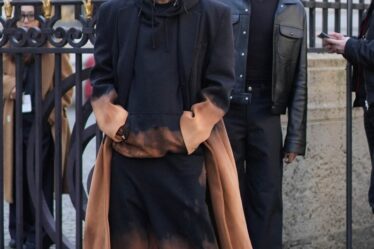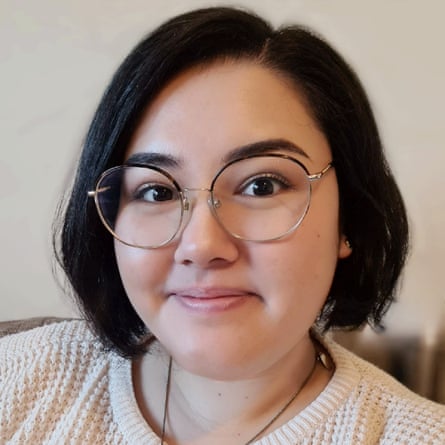
It’s fair to say Alasdair Friend didn’t always picture himself as a beekeeper. But when a diagnosis of motor neurone disease meant his father was no longer able to tend to his hives, Friend resolved to carry on his passion. He was not without doubts at first: “I remember driving back with this actively buzzing box of 40,000 bees and thinking, what have I signed up for?”
Now the proud owner of no fewer than 10 beehives, Friend, 57, who is a teacher in Edinburgh, still has the descendants of the bees he brought home two years ago. “Although they are pretty feisty at times and cause me moments of panic, I love carrying on with his traditions,” Friend says. “Each year I take the hives to the Cairngorms to collect heather honey to exactly the same place he brought his hives.”
How we spend our free time matters: research suggests that having hobbies can enhance mental and physical wellbeing and offer greater life satisfaction. From team sports to crafts classes, they can also be a means to meaningfully connect with others. And for some, having an interest in common offers a way to feel close to a loved one, whether or not they still practise it together.
Friend says his father seems “really pleased” that he has carried on with his hobby. “He’s still very interested – there’s an element of him doing it through me. I’ve met some great people and I’ve had a lot of fun, as well as moments of extreme discomfort when I’ve been stung and moments of terror when they start swarming.”
“It’s great to feel he’s passed on this bee baton to me and I’ve run with it. There are lots of things I’ve shared with my dad – he taught me how to love the hills and climbing mountains. Keeping bees is another thing later in life [through which] I’ve been able to have a connection with him.”
For Ayumi Christoph, 28, it was crochet that gave her a closer connection to her grandmother, despite there being thousands of miles between them. Over lockdown, Christoph, who works for a consultancy, revisited the craft her gran had taught her as a young child.
“I remember sitting at my grandmother’s dining table in Japan, eating mikan [mandarin oranges]. It was a world free of worry. When she brought out the crochet I just saw the magic happen in front of my eyes. She was making something beautiful out of nothing, really.”
Christoph now lives in Scotland, while her mother is in Spain, and her grandmother in Japan. She regularly shows them her creations over Zoom. “Practising the craft handed down to me so lovingly makes me feel connected to them, even though we’re so far apart. The crochet and all of these things that my nana taught me are wonderful reminders that I got to be close to her and that she will always continue to live on in me.”
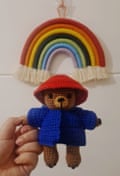
Working with textiles also offers Christoph, who sews and knits too, an opportunity to reflect on her family history. Her great-grandmother was born into a kimono merchant family, and became a kimono seamstress to support her family after becoming widowed. “My family has this long line of incredibly strong women who lived very long and fulfilling lives. What an incredible honour just to say that that’s where I come from.”
Inheriting his parents’ passion for birdwatching has given James Argles, 51, a deeply rewarding relationship with the natural world. “It was my dad mostly – his knowledge was very infectious,” says Argles, a London-based council officer. While growing up in the Lake District, his parents bought him and his two siblings binoculars. “The three of us fought, so it was a wonderful way of stopping that,” he says. “There was a silent communal feeling of sharing the joy of watching nature. The click as binoculars met spectacles, followed by a satisfied ‘uh-huh’ of recognition, remains one of me and my siblings’ clearest aural childhood memories.”
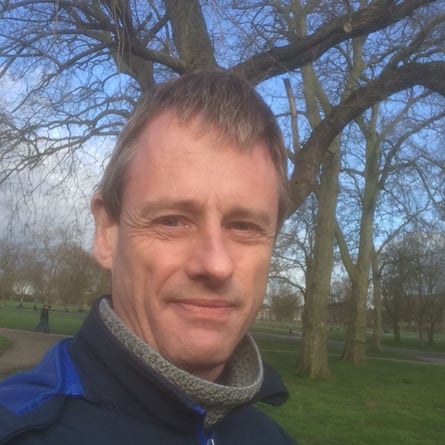
His father’s love for birdwatching was wrapped up in a wider love of wildlife. “Dad was very keen on us appreciating nature and doing it respectfully. He taught us there was beauty in the world if you look at it a bit closer. I think we’ve all taken that on in life.” It has left him with powerful memories; he recalls spotting a family of great northern divers on a childhood holiday in Iceland: “It was like someone had thrown diamonds on their backs. I remember my Dad pointing a quivering finger at them and we got chills – we realised we were seeing something rare.”
These days, Argles is more likely to be found spotting “little brown birds” near his home in north London. Taking in the natural world this way has makes him feel connected to his parents. “They transmitted a passion and I feel it’s paying back to me every single day. If I’m walking through the park, I’ll identify a goldfinch by its song.”
For others, shared interests bring together all ages: once a month, three generations of Jenny Johnson’s family go orienteering together. Spurred on by her father, the 44-year-old charity worker began practising the outdoor sport as a young child. “When my sister and I were little my mum used to take us round the course, sometimes with a pushchair!” she says, explaining that she began completing courses alone at the age of nine.
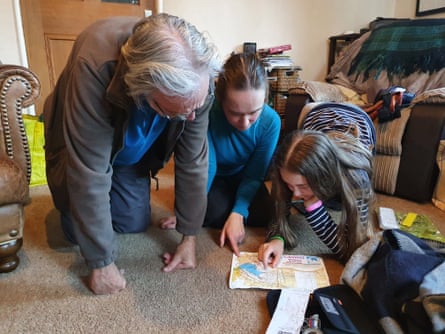
When it came to deciding on where to study, Johnson, from Sheffield, says she picked Durham University because it offered a year abroad in Sweden, the “home of orienteering”. She even met her husband there at an orienteering training camp. “We’ve both competed in world championships,” she says, adding that he also came from a family that practised the sport. Johnson says she now does it “for fun” and has enjoyed seeing the development of urban orienteering.
Their son, 10, has also recently started competing in the sport, and the family get out their maps and compasses every weekend; both sets of her son’s grandparents join them every few weeks. “I’m sure it’s made us closer as a family,” she says.
“We’re quite Yorkshire – we don’t always talk about our feelings, but it’s nice to have a shared hobby because we talk about them [through] orienteering.”


